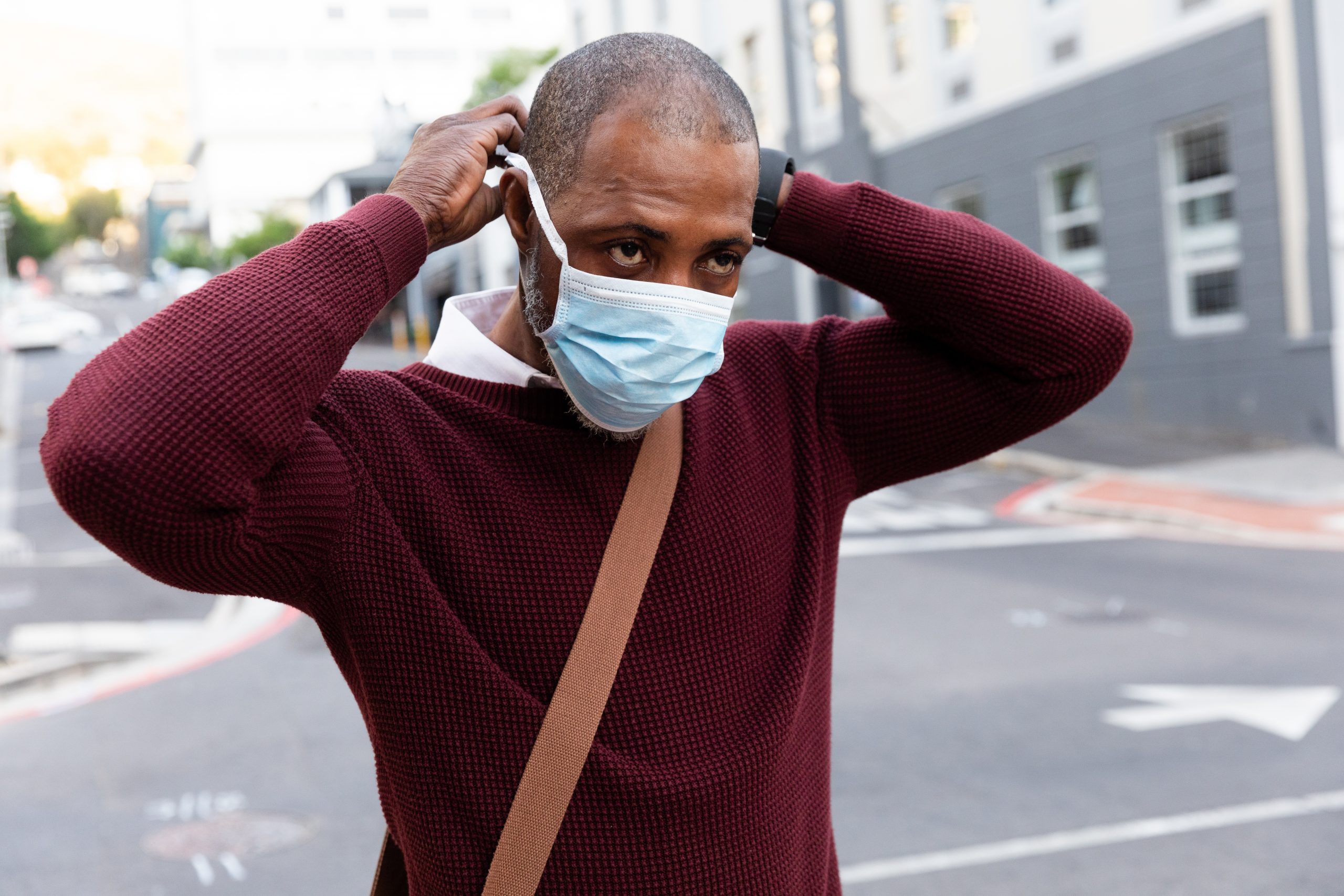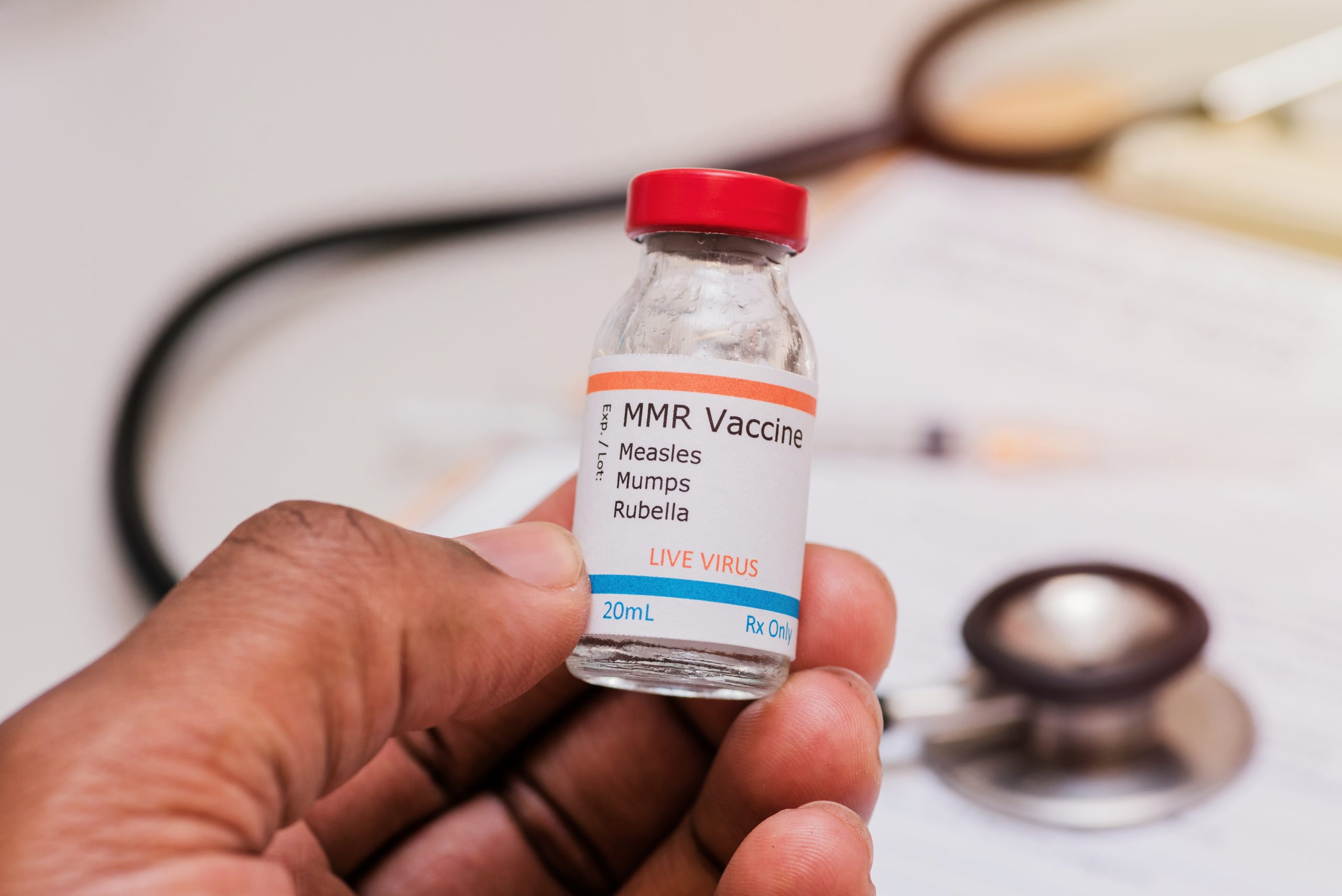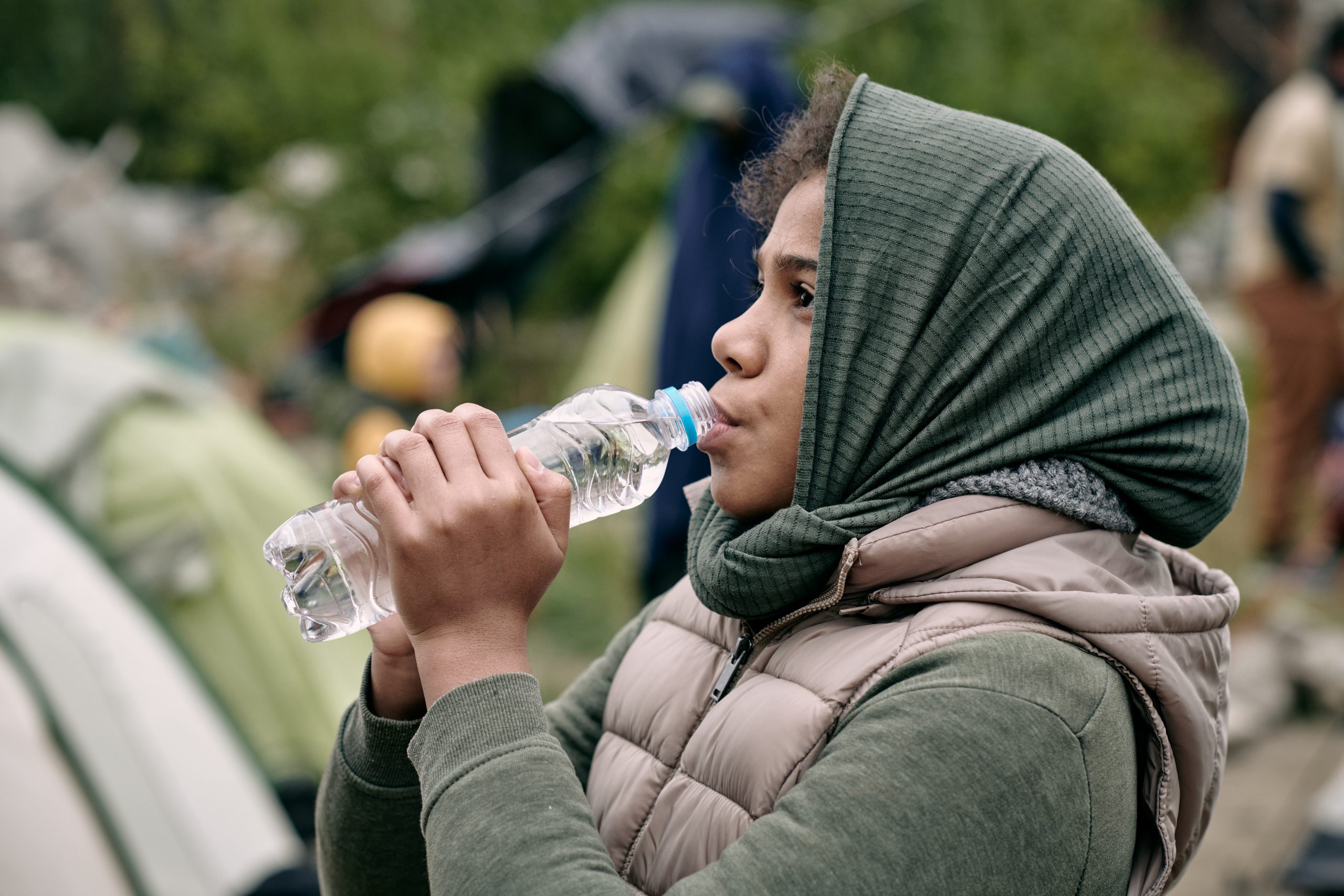HEALTH
SENEGAL: The collective “my darkness, my pride, my identity” against depigmentation.

The ban on the advertising of depigmenting products launched by the CNRA since November 2019 is not enough to stop the evil, according to the women of the collective “My darkness, my pride, my identity”. On the occasion of a march initiated this Sunday, January 12, 2020 in the Kaolack region, they challenge the authorities on the need to ban depigmentation once and for all in Senegal.
It was in Kaolack, located 190 km from Dakar, that the protest movement to ban depigmentation began its activities. An event in the form of a hike that mobilized hundreds of women from the collective “My darkness, my pride, my identity”.
The choice of the Kaolack region is not accidental. Kaolack is one of the localities most affected by the phenomenon. Dressed in black, they walked in several streets of the city chanting the message: “No to depigmentation” or, “We must ban any depigmenting product”.
According to Aby Seck, the coordinator of the local committee of the collective “My darkness, my pride, my identity” in the commune, 6 women out of 10 depigment their skin. Hence the urgency to continue raising awareness but also and above all the fight for the withdrawal of all depigmenting cosmetic products.
The peaceful march ended at the Coeur de Ville roundabout, where the demonstrators met the prefect of the department. The latter took note of the importance of such an initiative and stressed the dangers of depigmentation.
The collective intends to continue the fight in other regions of the country and invites women to no longer use these products harmful to health since black skin is already a natural beauty.
HEALTH
COVID 19 – A new variant we discovered

According to a senior official at the World Health Organization, a new highly mutated variant of COVID called BA.2.86 has been discovered in several countries including Switzerland, South Africa, as well as Israel, Denmark, the United States and the United Kingdom.
According to “Reuters”, the variant was first spotted in Denmark on 24 July after sequencing of the virus infecting a patient at risk of becoming seriously ill”. And so it was detected “in other symptomatic patients, during routine checks at airports and in wastewater samples in a handful of countries”.
Thus, scientists have indicated that “although it was important to monitor BA.2.86, it was unlikely to cause a devastating wave of serious illness and death given the immune defenses developed worldwide as a result of vaccination and previous infection”.
WHO COVID-19 technical officer Maria Van Kerkhove said, “The numbers are still low”. But the reduction in global surveillance could lead to rapid circulation of the virus…
HEALTH
TOBACCO CONTROL: Seven out of 10 people protected by anti-smoking measures

A new report from the World Health Organization (WHO) highlights that 5.6 billion people, or 71% of the world’s population, are now protected by at least one good practice policy to save lives from deadly smoking, five times more than in 2007.
Over the past 15 years, since WHO’s MPOWER measures were introduced globally, smoking rates have fallen. Without this reduction, the UN World Health Agency estimates that there are now 300 million more smokers worldwide. This new WHO report on the global tobacco epidemic focuses on protecting the public from passive smoking, noting that nearly 40% of countries now have fully non-smoking indoor public places. The report assesses the progress made by countries in tobacco control and shows that two other countries, Mauritius and the Netherlands, have reached the level of best practices for all MPOWER measures, a feat that only Brazil and Turkey have achieved so far. These data show that, slowly but surely, more and more people are protected from the harms of tobacco by WHO policies based on evidence and best practices.”said Dr Tedros Adhanom Ghebreyesus, Director-General of WHO, congratulating Mauritius on becoming the first country in Africa and the Netherlands on becoming the first country in the European Union to implement WHO’s comprehensive tobacco control policies at the highest level. Eight countries are only one policy away from joining the leaders of tobacco control: Ethiopia, Iran, Ireland, Jordan, Madagascar, Mexico, New Zealand and Spain. However, much remains to be done: 44 countries are not protected by any of WHO’s MPOWER measures. At the same time, 53 countries have still not adopted a total ban on smoking in health facilities. In addition, only half of the countries have smoke-free private workplaces and restaurants.
Passive smoking
“WHO urges all countries to implement all MPOWER measures at the level of best practices to fight the tobacco epidemic, which kills 8.7 million people worldwide, and to oppose the tobacco and nicotine industries, who are lobbying against these public health measures,” said Dr Ruediger Krech, Director of Health Promotion at WHO. About 1.3 million people die each year from second-hand smoke. All of these deaths could be prevented. People exposed to second-hand smoke are at risk of dying from heart disease, stroke, respiratory disease, type 2 diabetes and cancer. In this fight against tobacco, the ban on smoking in public spaces is only one of the measures of the Effective Tobacco Control Package, MPOWER, designed to help countries implement the WHO Framework Convention on Tobacco Control and stem the tobacco epidemic. The paper shows that all countries, regardless of income level, can lower the demand for deadly tobacco, achieve major public health victories and save billions of dollars in health care and production costs.
HEALTH
SENEGAL – 400 cases of measles recorded

Measles is back in force, with more than “400 cases recorded nationally”. It is a revelation of Doctor Boly Diop, responsible for epidemiological and post-vaccination surveillance at the Ministry of Health and Social Action, on Thursday, July 13, 2023.
“Performance in the first half of the year revealed the existence of a measles epidemic,” said Dr. Boly Diop, noting that Fatick is the only one of the country’s 14 regions that has yet to register a confirmed case of measles.
Outside of Fatick, all regions have confirmed cases of measles and there are districts that have become epidemic. This means that today, measles is back in force, there are confirmed cases and epidemics that are recorded throughout the regions,’ he said, on the sidelines of a quarterly coordination meeting for epidemiological surveillance.
-

 EAST AFRICA1 year .
EAST AFRICA1 year .TANZANIA – President meets with Chairman of the Board and CEO of the Merck Foundation
-

 BUSINESS8 months .
BUSINESS8 months .GUINEA – Authorities demand repatriation of mining revenues
-

 CULTURE2 years .
CULTURE2 years .AFRICA – African writers and artists celebrate the 20th anniversary of the African Union
-

 IMMIGRATION10 months .
IMMIGRATION10 months .AFRICA – Migrant smuggling brings 59 billion CFA francs to smugglers per year
-

 A LA UNE3 years .
A LA UNE3 years .GUINÉE: Manchester United: Paul Pogba absent several weeks
-

 CULTURE1 year .
CULTURE1 year .SENEGAL – Massamba Guèye wants to democratize the story
-

 CHAUD TOO CHAUD3 years .
CHAUD TOO CHAUD3 years .POLITICS – [INTERVIEW EXCLUSIVE] – MADAGASCAR – Fanirisoa Ernaivo, a politician and activist committed to the rule of law and respect for democracy
-

 CULTURE3 years .
CULTURE3 years .SENEGAL – “Sadik Lady” by Viviane Chidid



